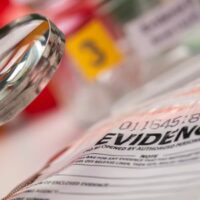Challenging DNA Evidence In Court

If you’re like most people, you probably believe that lab findings related to DNA at a crime scene are completely credible. It’s important to remember that the protocols and procedures around it rely on humans. And that means—you guessed it—there’s always a potential for error. To be sure, correctly matching DNA samples is much more complicated than it appears on television. In fact, the President’s Council of Advisors on Science and Technology has acknowledged that there are clear gaps in comparison methods in DNA samples, and has made specific recommendations related to such evidence:
- There should be ongoing evaluations of feature-matching methods and technologies;
- Complex mixtures involved in DNA testing must be more objective, standardized, and quantifiable.
The Chain of Evidence Custody
DNA evidence could potentially be contaminated at many points along the way in a criminal investigation. Consider the many people who interact with or test this material:
- Multiple individuals are generally present at a crime scene;
- Someone must collect the evidence;
- That evidence is handled by individuals as it makes its way to a lab;
- Forensic scientists must analyze the evidence.
If anyone involved in the chain of custody handles the material improperly, if imprecise measurements are taken, or if certain results become a priority because they fit a particular hypothesis, while other evidence is pushed aside, can the results really be trusted? Certainly, there may be no malice or ill intent by those connected to the evidence, but that does not mean errors don’t occur.
Questions About the Evidence Samples
In addition to potential problems with the chain of custody, there are a number of other factors that could impact the reliability of DNA evidence:
- Was the quantity of a particular sample sufficient to get reliable results?
- Have moisture, temperature, or other environmental factors damaged the quality of the sample?
- Does the evidence sample belong to a guilty party, or to someone who happened to be in the area around the time of the crime?
Bias in the Lab?
While it seems as though science should be cut and dried, studies reveal the opposite is true. It turns out that when DNA scientists are notified that someone in particular is viewed as a key suspect by prosecutors, they are more likely to match the evidence with that person. That should give pause to anyone facing a conviction based on DNA evidence.
Defense Strategies
An experienced defense attorney will have a lot of questions for law enforcement and forensics experts. Issues related to the collection, labeling, storage and comparison testing of DNA samples will be paramount. Queries related to the experience and training of police and technicians will be relevant. At Lobo Law, our Las Vegas criminal defense attorneys will leave no stone unturned when it comes to defending our clients. For a confidential consultation, contact our office today.
Resources:
theatlantic.com/magazine/archive/2016/06/a-reasonable-doubt/480747/
obamawhitehouse.archives.gov/blog/2016/09/20/pcast-releases-report-forensic-science-criminal-courts
